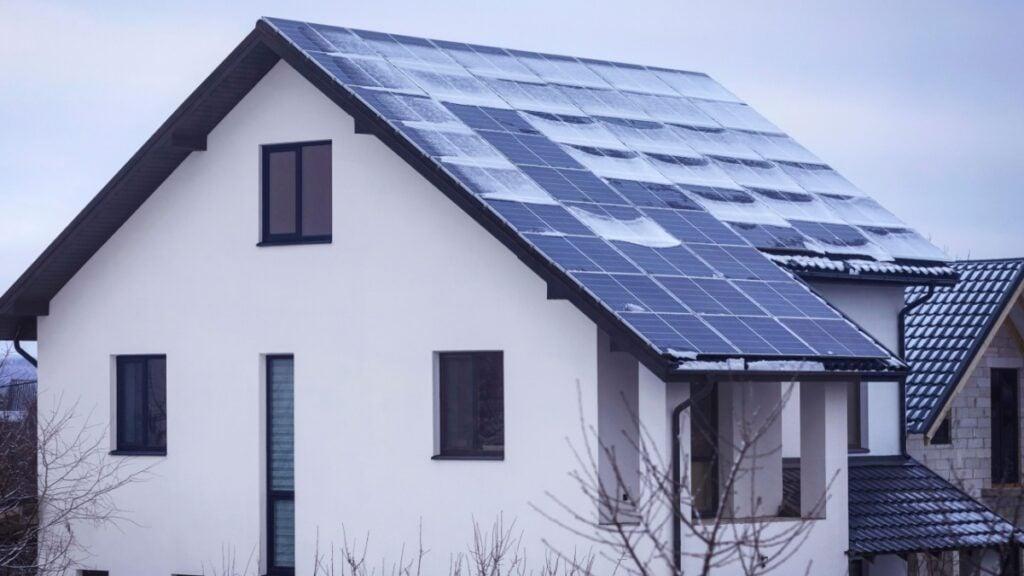Africa-Press – South-Africa. With winter approaching, experts advise South Africans with solar panels to consider stress testing their energy systems.
Although Eskom’s performance has significantly improved in the last year, the recent bouts of load-shedding reminded South Africans that blackouts remain a reality.
This includes implementing stage 2 load-shedding, which Electricity and Energy Minister Kgosientsho Ramokgopa said was “to manage limited generation capacity and ensure continued supply during the working days.”
“This decision follows the delayed return of generation units amounting to 3,120MW, as well as an additional loss of 1,385MW in the past 24 hours due to unplanned breakdowns.”
According to Eskom CEO Dan Marokane, South Africa can expect a load-shedding-free winter, provided unplanned outages remain below 13GW. If breakdowns exceed 15GW, Eskom forecasts no more than 21 days of Stage 2 cuts.
Whether Eskom manages to keep load-shedding at bay during the upcoming Winter period, experts urged solar users to take precautions.
Dr Rethabile Melamu, CEO of the solar PV industry association SAPVIA, explained that at the heart of it, a solar system needs to be looked after.
Solar users need to maintain this piece of electronic equipment in the same way they would look after other major investments, like their car.
Most solar systems in South Africa are hybrid, with components such as solar panels, wiring, inverters, batteries and monitoring software.
Solar panels themselves tend to be low maintenance. However, they are exposed to the elements every day and should be checked to see if dust has gathered or if anything else impacts them and their ability to generate power.
“We encourage homeowners to closely monitor their energy output via their monitoring software and apps,” Melamu said.
“An energy output decline of 15% necessitates cleaning. For optimum output, cleaning is recommended at least twice a year.”
Stress-test your solar system
Melamu also emphasised the importance of using properly registered solar installation companies to ensure safe, high-quality installations.
“Through our PV GreenCard programme, SAPVIA promotes industry standards and compliance with national regulations.”
The PV GreenCard “as-built report” documents the solar installation process and ensures that best practices are followed.
It is issued by certified installers who have undergone specific solar installation training and assessment in conjunction with the Certificate of Compliance.
Depending on the inverter and battery pack you installed, you could expect a 5-15 years lifespan, although older systems might not offer as long a lifespan as newer models.
Quality inverters and batteries come with more extended warranties and are more durable and reliable, Melamu explained.
The usage patterns of inverters and batteries also affect their lifespan. The frequency of use and power drawn tend to shorten the lifespan.
To extend the lifespan of inverters and batteries, it is recommended that they be cleaned regularly of dust and debris, connections routinely inspected, and wear and tear monitored.
“If your system was installed some time back, then it might be a very good idea to get an accredited service provider to visit as soon as possible.”
“Using certified installers not only protects the reputation of the solar PV industry but also safeguards end-users by ensuring installations meet both local and international standards.”
Melamu explained that the GreenCard initiative is part of SAPVIA’s effort to support the growth of the solar PV market in South Africa while maintaining safety and quality.
“Ask them to check the wiring and whether they are still safe and secure, and that they are also properly insulated. This is where the PV GreenCard As-built report comes in handy, as it documents models and warranties of components.”
“With winter approaching, it is certainly a very good idea to stress-test your solar system now before the cold weather hits. Fixing small problems today could help you avoid big and expensive problems down the line.”
For More News And Analysis About South-Africa Follow Africa-Press






